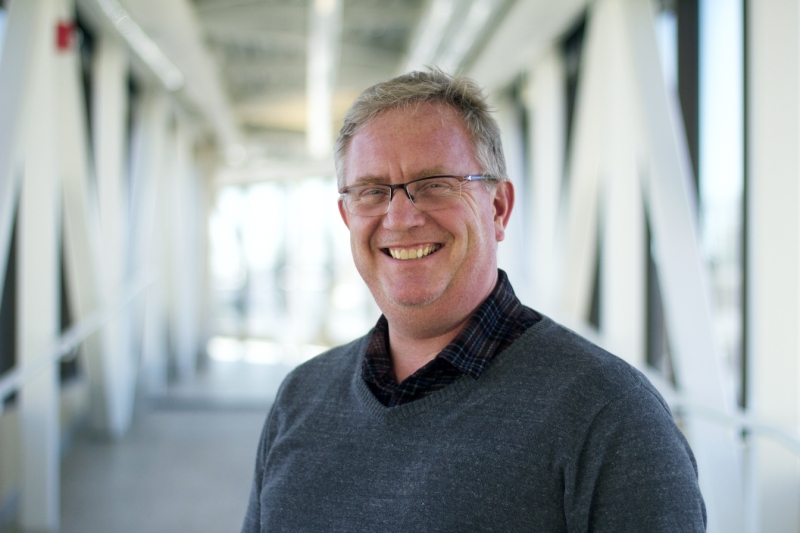
Faculty: In Their Own Words – Dr. Brian Froese

"I often say I became a historian because the job of rock star had been taken, and this was the next best thing," quips Dr. Brian Froese, Associate Professor of History. He has taught at CMU since 2006.
What do you love about your work here?
A number of things. CMU is a very humane, friendly, and encouraging place to work. There's an energy here that I find infectious. It's inescapably interdisciplinary, from curriculum to coffee breaks. The students are excellent, too.
What are you teaching right now that you're most excited about?
This past semester I taught two upper level courses: The Canadian West in the Twentieth Century, and History of North American Conservatism. These courses are exciting for two primary reasons. One is that they're both related to my current research projects. Secondly, by the time we get to upper level courses, especially at a school of our size, I have gotten to know many of the students really well. I've had them several times, and they themselves have been in many classes together and have gotten to know each other. So the courses themselves are these micro learning communities that make for safe engagement and nice dialogue.
What are you researching and writing?
I'm working on two book projects. One is called Northern Errand. It's a look at American evangelicals in Western Canada. I explore a number of religious, political, and business networks that were created over the course of the 1900s, primarily in Alberta but with some Southern Baptist, American mission activity in B.C. and Saskatchewan. The second project I'm working on is a Mennonite study which I've given the working title Supernatural British Columbia. It's focused on Mennonites in B.C. and mission activity covering the spectrum from the evangelical, soul-saving work through to Mennonite Central Committee, social justice work, for lack of a better term. It covers just after the Second World War to the 1990s. On the side, I do some writing on apocalyptic cultures amongst evangelicals, as well as horror films and heavy metal music. I recently sent off the final galley proofs for a book chapter called, "Judas Priest and the Fury of Heavy Metal Redemption." It takes a look at their transvaluation of Christian icons and images throughout the corpus of their work, from the mid-'70s to 2014.
What you are reading for enjoyment?
I'm reading a book called The Work of the Dead: A Cultural History of Mortal Remains by Thomas W. Laqueur, a cultural historian who teaches at the University of California, Berkeley. It's about what we do with corpses. One of the things that makes the book compelling and fascinating to read is that it's highly ambitious. He's covering a range of things, from medieval churchyards to the modern cemetery to cremation, and he's using a range of materials—poetry, paintings, religious texts, philosophical texts, medical records, and war memorials. The argument he is making is that the dead remain a part of our communities in how we care for and remember them. Part of the role the dead play is bridging the past and the present. To me, it's just fascinating. I'd never thought about it in this way. It's one of those books you read and you go, man, why couldn't I have done this? This guy's just traipsing through graveyards all over Europe—it must be so much fun. But, to each their own. We each have our callings.
Where or how do students give you hope?
The high quality of work that I see gives me hope. Despite the stereotypes out there, this is not a lazy cohort of people. They're taking their work seriously, and they're working hard.
Printed from: media.cmu.ca/faculty-in-their-own-words-dr-brian-froese